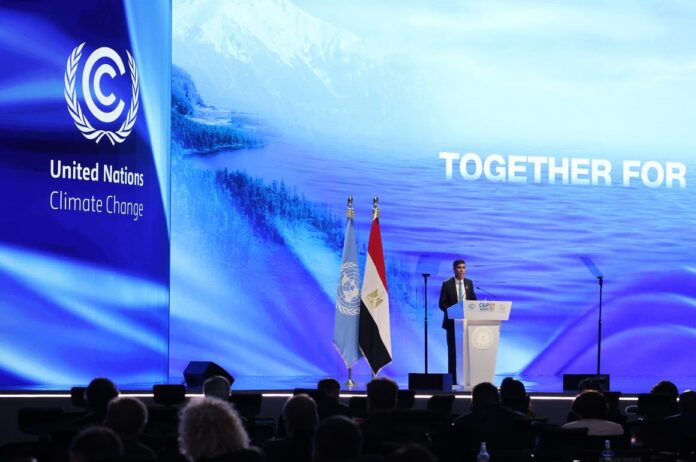According to the “Climate Change Committee (CCC),” the United Kingdom has relinquished its status as a “global leader” in climate action and is not taking sufficient measures to achieve its net zero emissions target by the middle of the century. In 2019, the UK became the first G7 nation to establish a goal of achieving net zero emissions by 2050, necessitating substantial changes in travel and electricity usage habits among the British population.
However, the CCC’s annual progress report reveals that the current strategies in place are unlikely to generate the necessary reductions in emissions, and the government’s endorsement of new fossil fuel projects last year has tarnished the country’s reputation as a climate frontrunner.
The repercussions of climate change are already evident in the UK, with record-breaking temperatures exceeding 40 degrees Celsius (104 degrees Fahrenheit) observed last year. CCC Chairman John Gummer expresses concern over the hesitancy displayed by government ministers in leading the country towards the next stage of net zero commitments.
The CCC, an independent advisor on climate action, has identified areas in which Britain has fallen behind, including the improvement of energy efficiency in buildings, the implementation of heat pumps, the reduction of industrial emissions, and the need to double the rate of tree planting by 2025.
Last year’s CCC progress report also highlighted the government’s lack of action in addressing climate change. However, since then, the government has launched its first oil and gas exploration licencing round since 2019 and given approval for a new coal mine. A government spokesperson defended the record of emissions reduction, citing the attraction of billions of pounds in renewable project investments and the support for new industries such as carbon capture and floating offshore wind.
The spokesperson also emphasised the establishment of a new department dedicated to achieving net zero and ensuring energy security, which aims to drive economic growth, create jobs, lower energy costs, and reduce reliance on imported fossil fuels.
In contrast, the Labour opposition strongly criticised the government’s approach. “Ed Miliband,” “Labour’s Shadow Climate,” and “Net Zero Secretary” described the CCC’s assessment as the harshest condemnation of a government since the committee’s inception in 2008.

















